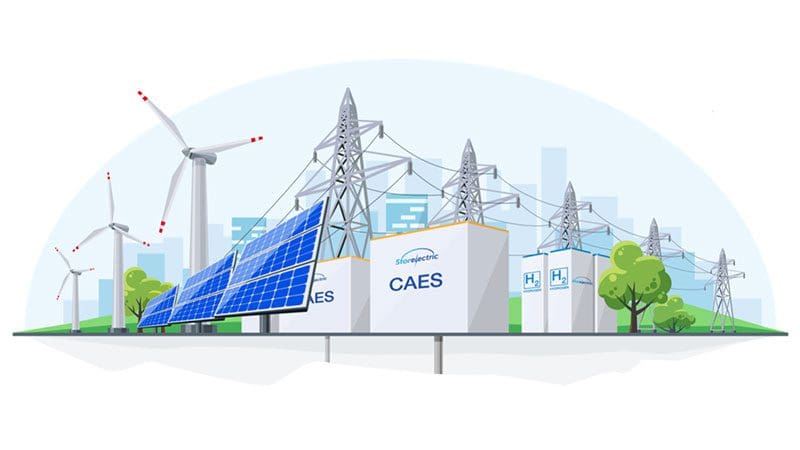Hydrogen PRODUcTION
technology PATENT
Hydrogen has emerged as an important part in the clean energy mix needed to ensure our future is sustainable; hydrogen technology has the power to drive the energy transition away from polluting fossil fuels. Existing electrolysis and other hydrogen production technologies all have significant draw-backs, particularly when operating at massive scale.
Our high-temperature hydrogen technology, coupled with our large-scale, long-duration storage has potential to produce H2 with dramatically increased efficiencies and lower costs than any alternative technologies currently in existence.
ENERGY-SAVING
HYDROGEN ELECTROLYSIS TECHNOLOGY
Breaking water into hydrogen and oxygen takes vast amounts of energy. The more energy that comes from heat, the less is required from electricity.
Storelectric has a granted patent which uses the heat of compression from CAES (compressed air energy storage) to catalyse electrolysis.
This has the potential to provide large amounts of very cost-effective green hydrogen for the hydrogen economy.
Our technology can also store this hydrogen safely at an optimum pressure.
COST-EFFECTIVE
H2 PRODUCTION & STORAGE TECHNOLOGY
Using excess renewable wind and solar energy in an electrolysis process to produce hydrogen is a highly efficient, cost-effective, and 100% carbon-free technology.
Storelectric’s CAES removes the intermittency from renewables, storing the air in salt caverns, so making electrolysis more efficient and cheaper. Storelectric has also patented the production of hydrogen using the heat of compression to catalyse the electrolysis, so increasing the efficiency of bulk electrolysis. The resultant hydrogen is stored in adjacent caverns at scales of GWh to TWh, providing a complete and cost-effective solution at infrastructure scale.
Storelectric’s technology can produce and store large amounts of green hydrogen very cost-effectively.


